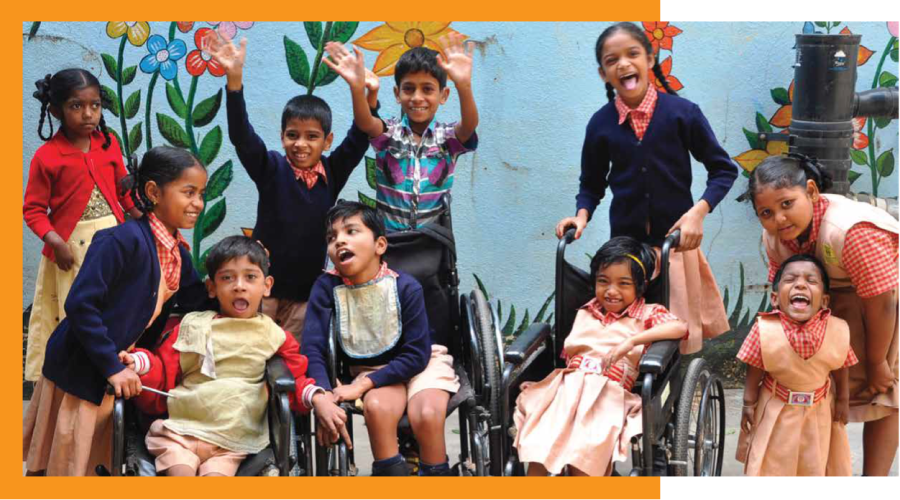
Illuminating the path to a brighter future for Lakshitha
Inclusive education ensures she can go to school, study, and make new friends comfortably with a hearing disability.
Creating an inclusive educational environment in schools by sensitising academic stakeholders on the needs of children with disabilities and equipping these children to study in mainstream schools.
Children with disabilities have benefitted from our Inclusive Education Program so far, with many more to go!
Our Approach
Our Inclusive Education program follows a three-pronged approach:

Cover all school books
needed to enlighten a
child with disability
Ensure a meal for
over 300 children
with disability
Grant a child with
disability one full year
of education
Provide the miracle of
mobility to 2 students
with disabilities
“Being a 15 year old that’s completely reliant on others to sit or stand is challenging, but it never deterred Dilip. After his successful rehabilitation with APD, he walks with the help of an assistive device customised for his condition and we could not have been more proud to see him pursue his studies!”
– Dilip’s mother on his experience at
the Shradhanjali Integrated School